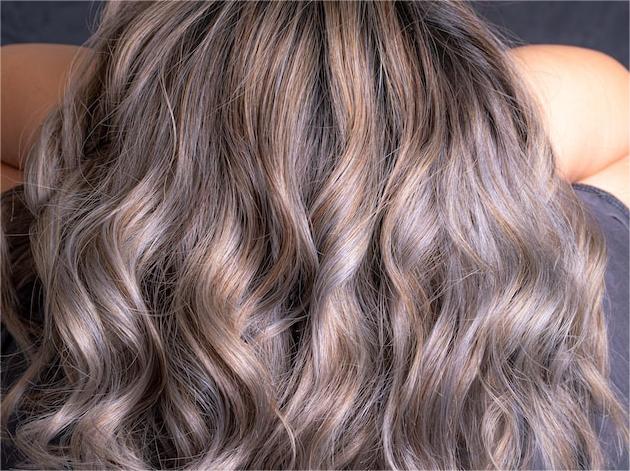Oily hair refers to hair that secretes excessive sebum, causing the hair to quickly become greasy, even shortly after washing. It is prone to flattening and dandruff problems, and requires frequent washing.
The formation of oily hair can be attributed to several factors:
- Excessive sebum secretion from the scalp: One of the main causes of oily hair is excessive sebum secretion from the scalp. Excessive sebum production can be caused by genetic factors, hormonal imbalances, excessive stress, improper diet, and more.
- Oversensitive hair follicles: People with oily hair often have more hair follicles, and these follicles are sensitive to androgens. When androgens interact with enzymes in the follicles, it can lead to increased sebum production.
- Incorrect hair care habits: Using hair care products that are not suitable for oily hair, frequent washing, using hot water to wash hair, excessive use of conditioner, etc., can stimulate the scalp and increase sebum production.
- External environmental factors: Environmental factors such as humidity, high temperatures, pollutants, etc., can also affect sebum production. High temperatures and humidity can stimulate sebum secretion from the scalp, while pollutants can clog pores and prevent normal sebum flow.

For this hair type, it is recommended to take the following care measures to help improve the condition of the hair:
Choose suitable shampoo products: Check the ingredient list of shampoo products and avoid those that contain excessive oils or moisturizing ingredients. It is recommended to use silicone-free products, as silicone can form a film on the hair and increase the greasy feeling.
Control the frequency of washing: People with oily hair usually need to wash their hair more frequently to control sebum production. It is recommended to wash the hair every other day or every two days to avoid over-cleansing, which can stimulate the scalp to produce more sebum. If you find that your hair becomes greasy quickly after washing, you can try using dry shampoo spray or powder to extend the time between washes.
Use lukewarm water for washing: Use lukewarm water instead of hot water to wash the hair, as hot water can stimulate the scalp to produce more sebum. Lukewarm water helps to cleanse the scalp and hair while maintaining the natural oil balance of the scalp.

Gently massage the scalp: During shampooing, use your fingertips to gently massage the scalp, which helps to clean the scalp and promote blood circulation. However, avoid excessive force during the massage to prevent stimulating the scalp to produce more sebum.
Control the use of hair care products: Avoid using excessive amounts of hair care products, especially those that are oily or contain a high amount of oil. If using styling products like hair gel or wax, choose oil-free products and avoid applying them directly to the scalp.
Avoid excessive touching of the hair: Frequently touching the hair transfers oil from your hands to the hair, increasing the greasy feeling. Try to avoid touching your hair too often to keep it fresh.
Blow-drying techniques: It is best for people with oily hair to avoid using a hairdryer or hot air to dry the hair, as the heat can stimulate the scalp to produce more sebum. You can choose to air dry your hair naturally or use cool air to dry it.
Distribute scalp oils evenly: Use a wide-toothed comb or a natural bristle brush to comb the hair, which helps to distribute the oils on the scalp evenly and reduce the greasy feeling of the hair.

In addition to the above care methods, there are some other considerations: in terms of diet, pay attention to consuming healthy fats such as olive oil, fish oil, and foods rich in vitamins and minerals. Avoid excessive intake of fats and junk food. Control stress and emotions, as stress and anxiety can affect sebum production on the scalp. Maintain proper sleep, as sufficient sleep helps maintain the balance of the body, including the health of the scalp.
By following the correct care methods and considerations, it is possible to effectively improve the issues related to oily hair. However, since everyone’s hair environment is different, it may require some trial and adjustment to find the most suitable care routine for oneself.
